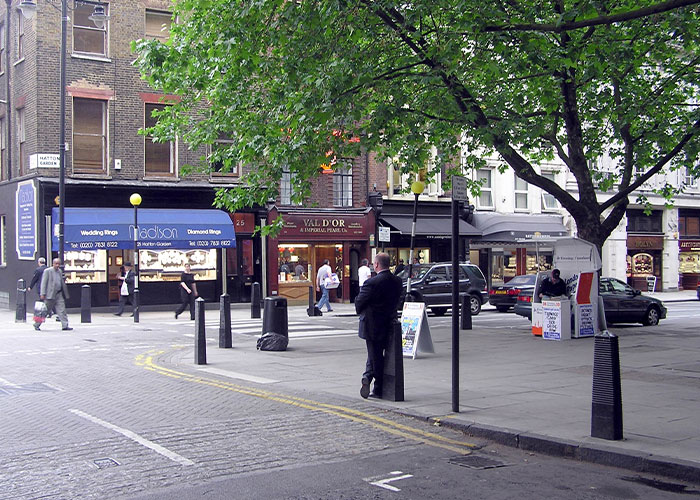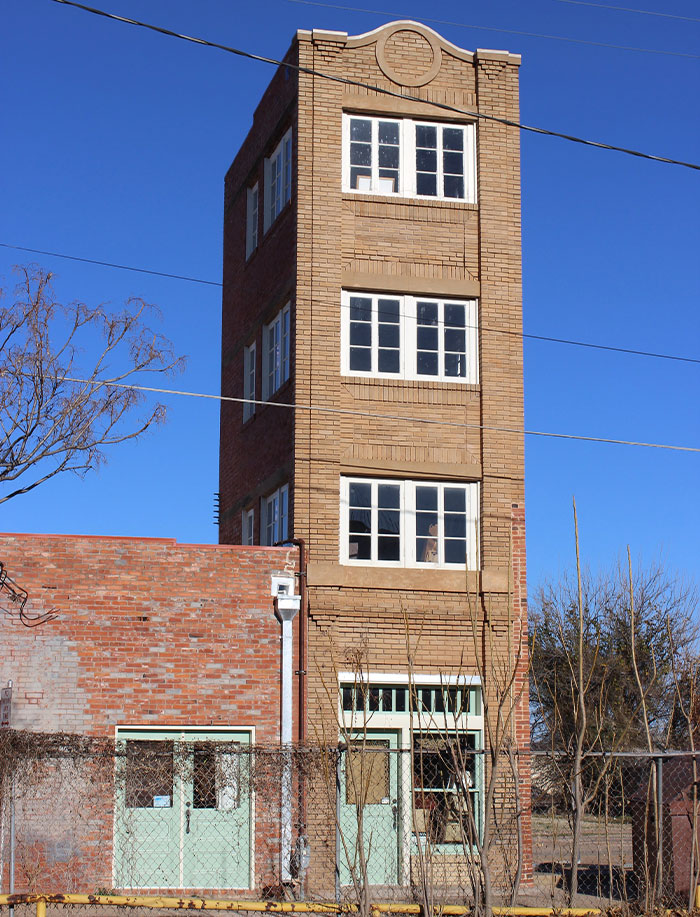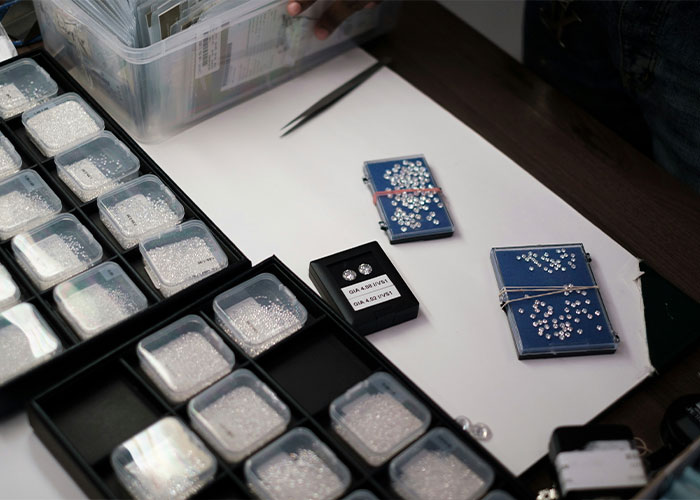When it comes to crime, not all criminals are reckless—some are incredibly calculated, leaving investigators puzzled for years. From meticulously planned heists to loophole-exploiting scams, people online are sharing the most ingenious crimes ever committed. These stories showcase criminals who almost outsmarted the law, proving that sometimes truth is stranger than fiction. Keep reading to uncover some of the most cleverly executed crimes in history.
#1
A friend of my brother's named Dave habitually ditched high school. One winter we got a pretty good snowstorm and his dad made him shovel the sidewalk before he left for school. Dave told his dad to write him a note because he was going to arrive late. Dave threw away the note, rewriting it and signing his dad's name in his own handwriting. He finished shoveling and then took the new note to school and handed it in to the school office. Since Dave was a known ditcher and the note looked like it was written by a teenage boy, they called his dad who backed up Dave's story, saying "Didn't he show you my note?"
The office ladies then put the forged note on file, and any time Dave wanted an excuse (for whatever), he just wrote himself a note that exactly matched what they had on file.

Image credits: JetScreamerBaby
#2
I'm not sure what year this happened, but prob within the last 50 years.
A number of people received a letter in the mail predicting the outcome of a sporting event. Amazingly, the prediction came true. Not much later, they received a second letter, predicting the outcome of another sporting event, and it too was correct. Then a third letter, and the same thing.
Then they received a fourth letter, and it said that for x amount of dollars the recipient would be told the outcome of another sporting event. Many people sent in the money, but never received the prediction.
The way the criminals did it was they started with a large number of people, then sent half of them one prediction and half of them another. Whichever group's prediction came true, they sent a second letter. And so on. I always thought that was a pretty clever scam.

Image credits: tereddits
#3
A guy dressed like a road maintenance worker robs a cash truck outside of a bank.
BUT prior to this, he put an ad on Craiglist offering work for $28/hour, and anyone interested had to show up at the bank, wearing the same road maintenance attire.
A dozen guys, all unwitting decoys, were milling about the parking lot as the robber escaped...on an inner tube floating down a nearby river.
Here's an article.

Image credits: tequilabourbon
Crime has always been a complex and intriguing topic, sparking debates across history, literature, and even casual conversations. What compels someone to break the law?
The reasons vary widely—sometimes it's desperation, other times it's opportunity, and in some cases, it's the result of deep-rooted psychological or social influences.
#4
I read about a guy up in Canada who got a clipboard and stopped people on the sidewalk for a few weeks, saying that the city was doing a test of how many calls the 911 switchboard could handle. This was before smart phones and cel phones and all that. So for weeks, he gets a lot of people to sign up to call 911 at 5pm on Friday, January the 16th or whatever. Then on Friday, January the 16th at 5pm, he robbed a bank that had all the payroll deposits for a whole bunch of companies but the cops never got the news because it was buried under the 600 phone calls that suddenly lit up the switchboard at 5pm. He got away with it, too. He left the bank and hopped on a ferry to the mainland and no one ever saw him again.

Image credits: skonen_blades
#5
Being a TV preacher seems to pay pretty well.
#6
Wage theft. Happens all the time and almost no one ever faces any consequences for it.
Wage theft in the U.S. is estimated to be about $50 billion annually, and represents those with the most money taking from those with the least. (No one is wage-thefting surgeons or partners in law firms.) But it's almost guaranteed that you'll get away from stealing from your low-income employees.
That CBS article begins, "If someone steals money from their employer, they could be guilty of a serious crime. But what if an employer takes money from their employee's paychecks?" Well, good for them--they'll probably get off scot-free. It's a genius crime: take advantage of our propensity to punish poor folk and let rich folk skate. F*****g brilliant. Deplorable, but brilliant.

Image credits: CrowRoutine9631
Studies have long shown a strong link between financial hardship and criminal activity. People born into lower-income families often face limited opportunities, making them more vulnerable to risky choices.
A study by the Brookings Institution found that individuals from disadvantaged backgrounds, particularly those born between 1980 and 1986, were statistically more likely to end up incarcerated due to their socioeconomic struggles.
#7
My parents made me give the money back, but I robbed almost all of my classmates as a third grader.
We took a trip as a class across a bit of the Mississippi River in a ferry boat. This was in the spring so everyone's on deck enjoying the weather, watching the water. I go down some steps I find and notice that there's a food court area with ridiculously low prices. A nickel for a soda, a quarter for a refill. Quarter pizza slices. Quarter candy. The cheapest prices I've ever seen. I go back upstairs and a kid that I hated saw what I got, and told me to go grab him some pizza. He gave me a $5 and asked how much the pizza was. I said $2. I went and got it for him. Another kid overheard and didn't want to go downstairs so they had me get something, too. That was another few bucks. Even the kids that didn't like me thought I was too naive to rob them. I ended up with $42. No one wanted to go downstairs to look for themselves.
I started the trip with $10 so the $42 was hard to hide, and I decided when I'd get home I'd put all the money into a sock under my bed. Spring cleaning happened, my parents found the sock and assumed at first that I stole it from them, told them I didn't, actually it was from my classmates, and a large scale refund happened the following Monday.

Image credits: YOYOVILLERULER9
#8
Scene: the town of Köpenick, a suburb of Berlin. The year is 1906.
An unfamiliar Prussian Guards Captain walked into the army barracks and ordered a small group of enlisted men to come with him. At the Captain's direction, the soldiers arrested the Mayor and City Treasurer on embezzlement charges. The captain made arrangements for the local police to "see to law and order" and prevent outgoing phone calls for one hour, sent the soldiers to escort the arrested officials to a particular Guard headquarters in Berlin for interrogation, and personally took custody of the town's cash box as evidence. When the soldiers and their prisoners arrived at headquarters, they were met with surprise and confusion, as the people there had never heard of the Captain or of any cause or orders to arrest the officials. Back in Köpenick, the Captain was nowhere to be found.
Turns out the Captain was a former shoemaker named Wilhelm Voight, who had a few months previously gotten out of prison on charges of burglary and fraud. In the meantime, he had cobbled together a passable uniform from bits he'd bought at second-hand stores, and the entire operation was an elaborate robbery. He got caught a week and a half later because he'd been careless in talking about his plans before the heist.
A little over a year into his four-year sentence, the Kaiser pardoned him on grounds of "I'm not even mad, that was amazing".
#9
Don't know if it's technically a crime, but the guy who sold $50 clotheslines as "solar powered clothes dryers" is an evil genius.

Image credits: Classic-Historian458
When life gets tough, crime might feel like the only way to survive. Some people turn to theft to put food on the table, while others get involved in illegal activities just to make ends meet. But desperation-driven crime comes with heavy risks, and often, the consequences far outweigh the short-term relief.
#10
Pretty Boy Floyd, a bank robber who'd destroy people's mortgage papers freeing them from their debts mid-robbery.
#11
The Hatton Garden Heist is coming up on 10 years ago. That was described by a lawyer on the case as the largest theft in UK legal history...
6 Elderly men dressed as gas repair workers, got in through a fire escape, abseiled down a lift shaft and spent a 4 day Easter holiday weekend drilling through the vault wall of a safety deposit company vault. They stole the contents of 70 deposit boxes and got away.
They were eventually arrested based on CCTV footage and their existing criminal records, but only £4 million of the £14 million worth of cash, gold and jewels was ever recovered.

Image credits: Slanderous
#12
The guy who stole $100 million by sending fake invoices to Google and Facebook.

Image credits: wbennin
The people we surround ourselves with can have a huge impact on our choices—including whether or not we engage in criminal behavior.
Research has shown that individuals with delinquent peer groups are more likely to follow in their footsteps. Sometimes, it’s about peer pressure; other times, it’s simply the environment shaping their actions.
#13
The great Canadian maple syrup heist is in the top 10 in stolen goods by value to ever be stolen anywhere in the world. A guy worked at a maple syrup storage facility over the course of years and the only reason anyone found out is that one day on inspection an engineer saw that some of the barrels were sweating. They had replaced the syrup with water. Now maple syrup is considered a valuable limited resource in Canada because maple trees take decades to grow to the point where they can produce a significant quantity of sap without dying and even adult trees can die from over harvesting.
In order to prevent this the government buys all of the syrup produced every year and stores the surplus at pre decided rates. This creates a surplus on years with good harvests. Which is stored in a maple syrup storehouse. As of 5 years ago it was estimated that tens of millions of dollars of syrup sales in the USA is sourced from black market syrup every year. They never caught the people who did it.

Image credits: shadowsog95
#14
Whoever convinced the world to pay for bottled water deserves a spot on this list. They're basically selling free stuff with a lid.
#15
The World’s Littlest Skyscraper!
In the 1910’s there was an oil boom happening around Wichita Falls Texas and there was a massive influx of people. J.D. McMahon saw an opportunity and announced that he would build a high rise building downtown to accommodate the rising population. He put together blueprints for what everyone thought would be a 480 ft skyscraper, one of the tallest in the world at the time.
He gathered up enough investors to collect $200,000 (roughly $3.5 million in today’s money), started building a tiny building about 3 stories tall using his own construction crew, and pocketed the remaining cash. Naturally all of the investors tried to sue him to get their money back, but on all of the legal documents and on all the signed off blueprints he had the building listed as 480” (inches) instead of 480’ (feet). And he had built 480” building.
A local judge declared it legally binding and McMahon skipped town with all the remaining cash prior to the end of construction. The only portion of their investment the investors recovered was from the elevator company, which refused to honor the contract after learning how small the building was.
The “Newby-McMahon Building” is still standing in downtown Wichita Falls today.

Image credits: hobojoe5282
Drug and alcohol abuse also play a significant role in crime rates. According to data from the National Institute on Drug Abuse, around 65% of incarcerated individuals in the U.S. struggle with substance use disorders.
Another 20% committed their crimes while under the influence. In many cases, addiction and crime form a vicious cycle, where one problem feeds into the other.
#16
There was a parking attendant who collected the parking fees for a public zoo. He worked there for decades. One day he just stopped showing up. After a few days they called the city and said the parking attendant quit and they needed to hire a new one. The city told them that it didn't cost any money to park on that lot.

Image credits: I_might_be_weasel
#17
The McDonald's Monopoly scam- the head of security of the marketing company that helped McDonalds administer their famous monopoly game led a scheme where he stole the winning pieces and with a group of people helped cheat the company out of like $24 million over the course of several years. He was responsible for carrying the winning pieces in a sealed package and taking them to packaging centers where he was responsible for applying the winners to soda cups and fry packages that were going to be sent out to mcdonalds that had already been randomly selected by a computer.
Basically he was accidentally sent a bunch of tamper proof seals that allowed him to swap out the winning pieces that he was responsible for carrying with non-grand prize ones; he'd dodge the auditor by hiding in an airport bathroom and doing the swap there. then he'd do his job as usual, but sent the losing tickets out while he pocketed the winners. He'd then get his friends and family to help find people to "claim" the winning prize for a promise of splitting the money. Eventually the feds got a tip about one of the winners and noticed that there was an unusual cluster of winners of the game in states like Florida and Georgia, where the guy and his family lived (remember, the tickets were supposed to go out to random destinations around the US). Several people got arrested.

Image credits: v_rose23
#18
The 1976 bank robbery in Nice, France. They tunneled into the vault on the Bastille Day long weekend, stole over 40 million Francs worth of cash, securities and valuables, and spray painted *sans armes, ni haine, ni violence* ("without weapons, neither hatred, nor violence") on the wall. The leader was caught and during his trial he jumped out of the window, landed on a car, got on the back of a waiting motorcycle and disappeared.
WalnutSnail:
I think this is the one where they did it over a weekend and brought in catering and had a feast IN THE VAULT. Could be wrong that it's this same one, but I saw a television show about it.
Les boules sur ces hommes.
Education can be a powerful tool in crime prevention. Studies have found that children who attend early childhood education programs are far less likely to engage in criminal activities later in life.
When kids have access to quality education, they develop better coping skills, career opportunities, and social connections—all of which lower the chances of them turning to crime.
#19
Selling the Eifel Tower as scrap metal was a great con that doesn't get a lot of attention.

Image credits: lMakeshiftl
#20
Pretty horrific, but also bizarrely complex, was the assassination of [Kim Jong Nam](https://en.m.wikipedia.org/wiki/Assassination_of_Kim_Jong-nam), the elder brother of North Korean dictator Kim Jong Un.
The two assassins didn't know they were being trained to kill anybody. They were hired on as talent for a prank-based TV show. Their signature "pranks" were to run up on people in public with hand sanitizer on their hands and wipe it on someone's face. Then they'd go, "sorry!" and run away giggling. The other gal would run up and spray cologne on the prank target, and similarly run off. They were trained after a successful "prank" to immediately discard of the supplies, wash their hands and change clothes if I recall correctly, then dissappear into the public crowd and regroup elsewhere to film another one. Anyway, this went on for some time, just a harmless prank show.. Until it wasn't.
Kim Jong Nam came in through the airport, on his way to take his kids for some very Western vacation time, like I think they were on their way to Disneyland. He was very different from the rest of the dynasty back home. He was disinterested in politics and brought shame to his family with an untoward interest in western lifestyles and entertainment. So he was kinda sneaking through, he was trying to keep this trip on the down low.
Anyway, here come our ersatz pranksters to play their tricks. Only this time, the "hand sanitizer" and "cologne" are two parts of a deadly nerve toxin, that once combined on his face, killed him in minutes. The two would-be TV stars scattered, washed their hands, disposed of the supplies, just as they always had. They get caught by CCTV, and the whole affair is just crazy. I probably have all the details wrong so check out this instead.
#21
A guy in Springfield Mass robbed a bank in a wheel chair. He got the money, and left, then proceeded to circle the block, passing the police many times.
Nobody told the police he was in a wheelchair.
Long story a little shorter: It was winter and freezing cold. He WANTED to get arrested because he had just be release from prison and wanted to go back where it was warm and had food.
Joblessness is another major factor linked to crime rates. When people can’t find stable employment, they may feel trapped and resort to illegal means to provide for themselves or their families.
A secure job not only provides income but also a sense of purpose, structure, and stability, reducing the likelihood of engaging in unlawful activities.
#22
Diamond heist at Gassan diamonds in Amsterdam in 2001.
Bloke worked at the store and noticed that he got a lot of trust when handling diamonds with little oversight. So one day he simply walked in with an empty microwave box and took it to the back. Loaded the box with millions worth of diamonds and walked out the front door all the while greeting colleagues and customers, never to be seen again.

Image credits: zeekoes
#23
The most genius and clever ones, are the ones you don't know about.
But two of the most genius criminals that *DID* get caught are Al Capone and Ted Kaczynski.
_________________________________________
Al Capone got bagged on tax evasion. Not bootlegging. Not racketeering. Not extortion. Not Murder. Not Blackmail.
Tax Evasion.
His criminal system was so well designed he was effectively insulated from being held accountable for anything. Ultimately the only thing they could nail him on was not paying taxes on his illegal income.
________________________________________
Ted Kaczynski was extremely intelligent. Unhinged yes, but also extremely intelligent. He made something like 16 improvised explosive devices using very basic tools and materials.
People had no clue who he was, and the only reason they got a lead on him was when his manifesto got published, his brother happened to read it and recognized the stylistic prose, and tipped off the FBI that he thought it might be Ted.
How tenuous is that for a lead? "Hey, the way this guy writes reminds me of my brother, you guys should check that out."
If his brother had not read the publication, and recognized the prose as familiar, the Unabomber may not have been caught.
#24
I think an honourable mention goes to the theft of the Stone of Scone. In ancient times the Stone of Scone was used as a coronation seat for kings of Scotland, until 1296, when Edward I took it back to London during the First War of Scottish Independence. It was then kept in Westminster and used for a similar purpose for English kings, as Edward wanted to claim lordship over Scotland as well as England.
Then on Christmas Day in 1950, a group of students broke into Westminster Abbey, stole the Stone, and brought it back to Scotland in an elaborate and mostly improvised plot that stretched over two weeks. Four months later it was left anonymously on the altar of Abroath Abbey.
The four students ended up confessing, but were never charged due to the amount of strong feeling from Scotland. Due in part to this, the Stone was returned to Scotland permanently in 1996, where it has lived ever since, except for King Charles's coronation in 2022.
Ultimately, crime isn’t always about a lack of morals—it’s often about circumstances, desperation, and environment.
Economic struggles, lack of education, substance abuse, and peer pressure can all push individuals toward bad decisions. Understanding these factors is crucial in finding ways to prevent crime before it happens.
#25
Not a great crime but clever. Guy I grew up with was a grade school dropout. Got himself a tow truck. Bid cheap for the contract to service rental cars at a certain airport — okay, EWR. Back in the day cars had distributors. When this guy needed money he just pulled the distributor wire on a rental car or two. This resulted in a call to him to tow and fix said vehicle. Which he happily did, sending the rental car company a fat bill for complex repairs, when all he had to do was plug in the wire. He worked this scam for years.

Image credits: tpatmaho
#26
Older days fabulous crime...blanket deposit tickets were always on counters, you filled in your account number and name. Some genius took a bunch of blank deposit tickets and used the MICR machine (the black coding on the bottom of the deposit ticket that was read by their machine) to encode his account number on all of them. For a number of days, all deposits went straight into his account and he moved the money elsewhere each day. Clever!
#27
One guy found a payment glitch in an online black market back in 2012 leading to the largest bitcoin theft in history. He stole over 50k bitcoins (worth $3.4b today) and managed to hide for years using crypto mixers that made all his bitcoin transfers practically untraceable.

Image credits: oskel95
That being said, some of the stories in these posts highlight just how creative people can be when it comes to breaking the law. From elaborate schemes to bizarre heists, these clever (yet illegal) acts might leave you both amused and surprised. Which one do you find the most unbelievable?
#28
The Isabella Stewart Gardner Museum Theft has to be top of the list. To this day multiple rembrandts are still missing with zero indication who took them or where they are.
#29
The Spiderman of Paris.
Dude stole 5 paintings worth over 100M£ from museum in Paris and did it like it's nothing. In interview he said he was surprised how poor and the security of the museum was. He checked side windows and broke in them easily. He casually walked out the gallery with 5 different paintings and walked with them across the street to his car in the middle of night. People of Paris actually find him interesting because he is not violent and doesn't kill or use aggression and for his crazy walking and climbing across very high walls and rooftops. Before pulling the big heist he did some smaller robberies like breaking into rich people's apartments and stealing small things like jewelry. Not once he threatened, hurt of killed someone.
He comes from my place and was a good friend of my dad. One woman from my neighborhood said he stole the art and gave the money to the poor which wouldn't surprise me.
#30
I used to work in IT in central London - a story went around about a team of guys pulling up to a very large financial institutions offices one night in a couple of brand new matching Transit vans, the occupants getting out, all in matching overalls and hi-vis vests, and explaining to the night watchman that they were there to do some out of hours IT work.
They then calmly walked into the IT department, disconnected several hundred thousand pounds worth of kit, loaded it into the back of the vans and drove off. between looking completely above board and having some convincing bogus paperwork, apparently the security guy didn't bat an eyelid and it was only next morning that it came to light.
#31
Like 15 years ago a guy robbed a bank in SF dressed as Santa, during Santa Con.
Never caught them.
#32
An Olympic cyclist, named Tom Justice, was a serial bank robber (26 heists in total). He always made his getaway on a bike. The (long) story is absolutely wild. I’m amazed no one’s made a movie about this.
#33
Honestly, one of the craziest ones I’ve ever read about is the Copenhagen Heist (1995). A group of thieves managed to steal a *million-dollar shipment of pharmaceuticals* by posing as delivery drivers. They intercepted the real delivery van, handed the driver fake paperwork, and *drove off with the goods*. No violence, no mess, just pure deception. It took investigators weeks to realize what even happened.
Another insane one? The Stuxnet Cyberattack. Okay, it’s not a traditional “crime,” but it’s genius-level. Hackers created a computer worm that specifically targeted Iranian nuclear facilities, sabotaging their centrifuges. It was so sophisticated it disguised itself and left no trace of who was behind it (allegedly some governments, though 👀). Imagine having the brains to pull off something that *literally rewrites code in real-time*.
#34
In 1989, a robbery occurred at the armored car outside of a bank in Minnesota. As a guard was loading money 3 armed men subdued him. Then, a van drove in front of the armored car and another man put a bomb on the hood and threatened to detonate it. After the thieves fled, the bomb squad was called in to defuse the bomb. They found it was a fake.
In under a minute, the thieves took over $1m and vanished.
Police believe it was related to a similar crime that occurred in 1986 in Maryland that also used a (fake) bomb.
#35
DB Cooper was definitely an ingenious plan. Knowing which plane had back stairs that he could jump out of. And no one knows for sure if he survived.
#36
SWIFT is a company that manages transactions between banks, especially between different countries. Instead of a bank having connections to each and every other bank, they just have a connection to SWIFT. In these, transactions can have a value of more digits than usual (think more or less than half a cent), but SWIFT only transfers cents and up. They round 0.5 up and less than 0.5 down.
One IT guy made a change where all down-rounded amounts were sent to his account. With less than 0.5 cent per half of all transactions, that is not much, but with tens of millions of transactions per day, it quickly adds up.
One day he did not show up for work and the company started an investigation. They have never found him.

Image credits: comicsnerd
#37
I grew up in a small town. One day, someone called in a bomb threat to the local high school, so naturally most of the police were at the school investigating. Around the same time, there was a major power outage in the town. While all this was happening, two dudes robbed the local bank and got away.
To this day, nobody knows if any of it was connected, but what we do know is that the robbers were never caught.
#38
The one's we haven't even heard about.
Probably one of the most intriguing crimes in my opinion is the Transylvania University Book Heist in 2004. Essentially, a college student at Transylvania University in Lexington, KY discovered that the library contained a collection of rare and extremely valuable books (a lot of libraries have a "special collections" section, usually apart from the rest of the library in a room with strict air quality control.) He discovered that there was practically no security, save for one secretary and a sign-in sheet.
After traveling to New York and later Amsterdam to arrange a buyer, he set up an almost Hollywood style heist with several friends, initially planning to disguise themselves as old men but later abandoning that attempt. On their second attempt, they successfully got away with a bunch of volumes with a total value of **5.7 Million Dollars.** They got as far as attending an appointment with the New York office of Christie's to obtain an official valuation. They were eventually tracked down and caught by the FBI.
Of note is that this is one of the earlier cases that set the standard for internet media enterprises (in this case, Yahoo, among others) cooperating with law enforcement in investigations. The FBI eventually matched the suspects' social media pictures with security camera footage of their meeting at Christie's. Also, this case changed the way Libraries secured their special collections. I believe Transylvania University now requires biometric identification, all visitors to be escorted at all times, and positive verification of identification through the University Police.
#39
The 1986 LA tunnel bank robberies.
2-3 people used ATVs and other equipment to traverse LA's storm drainage system, cut holes into bank vaults, and stole millions of dollars worth of cash and valuables. When investigated, cops discovered they were probably very close to cutting their way into another bank vault that would have netted them tens of millions. They've never been caught or identified.
#40
When I first became an attorney I had to do a lot of appointed criminal defense work in municipal court. 90% was people stealing from Wal Mart. Mostly just 'forgetting' to scan certain things at the self checkout.
However one time, and I can honestly say the most ingenious crime I have seen, there was this guy who would grab a 0.59 cent Kool-Aid packet and then palm it while he scanned all kinds of expensive stuff.
I really thought that was about genius level thinking.
#41
Arno Funke alias Dagobert.
He blackmailed stores for money. He planted smoke bombs in the stores, which ignited at night. The fire suppression systems destroyed the items in the shop, so they agreed to pay him money.
On one occasion he ordered the money to be put into a box at the end of a train. The police figured out that the box is attached to the train and will be dropped by a timing mechanism. So the police waited at the spot where the train would be when the time runs out.
However the timing mechanism was just a distraction. Arno hid an RC receiver in the box and used a remote to detach it earlier than expected.
Another time he put a small layer of concrete over the entrance to a rain water channel and put a box over it.
When the money was put in he waited a bit and then broke throught the concrete from underneath and took it.
Sadly for him in both cases the police used fake money.
#42
Emmanuel Nwude orchestrated one of history's most audacious scams, selling a non-existent airport for a staggering $242 million. In 2005, Nwude was convicted for impersonating the Governor of the Central Bank of Nigeria. Posing as Paul Ogwuma, he convinced Nelson Sakaguchi, director of Brazil's Banco Noroeste, to invest in a fabricated airport project in Abuja. This elaborate deception, the third-largest bank fraud globally at the time, ultimately led to the collapse of Banco Noroeste in 2001. Leveraging his prior role as a director at the Union Bank of Nigeria, Nwude seamlessly assumed the identity of the CBN Governor, executing his elaborate fraud with remarkable finesse.
#43
Honey browser extension.
It's literally daylight robbery and the best part is influencers themselves were at the short end of the stick. the potential loss is in millions for sure.
stupid-canada:
Very very short explanation.
- companies can pay them to not use the best coupons that are available. -companies can also pay for them to just not work on their site
- biggest thing; even if they don't apply any coupons just the act of the extension popping up and you clicking it away would change the cookie that controlled who got a referral code sale. For example, a YouTuber advertises a product. You click their link. Normally if you make the purchase with in so many days of having clicked the link the YouTuber gets a cut. What honey does is pop up, and with any interaction, even just dismissing it, changes the referal code to their own, meaning honey got the cut and not the youtuber that actually for you to buy it.
#44
I used to call the operator on a payphone near my house and say i put like 3 dollars in and the phone wouldnt work. theyd try to return the change, but there wasnt any to return. so theyd offer to send me a check for the amount i "lost" in the payphone.
then for a few days id check the mail for the letter from at&t or who ever. when it showed up id take it to my dad and hed cash my check for 2.75. i did it prolly a dozen times, i was a 13 year old criminal mastermind sticking it to the phone companies. unfortunately my dad was an innocent patsy.
the things a fat kid'll do for a candy bar.
#45
My high-school friend's father was a pretty brilliant con, with an M.D., and served as a State Supreme Court Justice for a while. We were chatting on his sun porch one afternoon, and he told me how he robbed a very popular regional bank out of 400K.
He was under investigation and decided to get out of the country with his family, so he borrowed that amount to finance their travel and lives for a while. They moved to another country, and he claims he sent postcards back to the bank, saying he was having a great time and thanks for the money. He was funny as hell. He made no loan payments; it goes into default, and he puts himself through med school in the foreign country, returning to the U.S. 5 years later.
Since he was already being investigated for other s**t, the bank involved the feds, and the feds took it on because he was out of the country. I think the statute of limitations for the fraud was 4 years, but only goes into effect if/when the person is in the country; if they leave the country, the timer doesn't start until they return. He moves the whole family back to the same city they left, and he's in custody within 12 hours.
While being questioned, he tells the feds that they need to go to the courthouse and check his file. Before he left the country, he filed a simple form naming an "Agent to Render Services" while he was out of the country. This means that his agent was responsible for any financial/legal affairs, and the statute of limitations was never suspended – and had thus expired. He gambled that they would never bother to check that.
It was fun to hear this all first-hand. That was the only conversation I had with him.
#46
In Sicily the Ndrangheta get regular cooking oil and put a few drops of food dye in it and sell it as extra virgin olive oil.
This makes them about a billion euros a year.
#47
Some a*****e started a crypto exchange, got everyone to register their wallets with his exchange, emptied all the wallets, sold all the crypto even though the account balances remained on the books, told everyone the exchange got hacked, then retired to the south of France
His scam was so good FTX tried to copy it 8 years later.
#48
This happened in my small town a couple decades ago and I don't have an article for it. There's a parade once a year for FFA (future farmers of America) and it used to go all the way through town, essentially cutting off one side from the other for those couple hours.
The police station is on the south side of that cutoff and a bank is on the north side. Some people decided to rob the bank and the only way for the police to get there was to go the wrong way to the freeway (which only had a southbound onramp), go all the way to the next exit with a northbound entrance, flip around, then take the northern exit, just to go south to get to the bank.
Essentially, this created a 10-15 minute buffer for the robbers. Ever since that incident, they cut off a one block section of the parade route to allow them to respond without having to do that huge detour.
#49
I like the story of **Odalisque in Red Pants by Matisse**.
A Miami Art dealer gets a call. Someone wants to sell him the painting on the QT. He calls the Museum it is hanging in, in Caracas Venezuela. So The Museum Investigates and discovers that someone had removed the original painting and put a replica in its place, leaving it to be exhibited as if it were the real thing.
No one had noticed that a fake was hanging there, and No one is sure when the switcheroo took place. When this was all discovered in 2002 they could only say the fake had been hanging in the museum for at least two years. They know because a photograph taken in September 2000 shows President Hugo Chávez standing in the museum in front of the fake Matisse (which is more cartoonish and brightly colored than the original). That is the earliest confirmed date for the switch.
Anyway, the Miami guy keeps the crooks on the hook, they fly in from Mexico with the original and the FBI arrests them and recovers the painting. The seller only says she has had the painting in her possesion for several years.
#50
So in my opinion yeah, it has to be the “Great Train Robbery” in 1963 believe me it was wild. A group of guys in the UK stopped a Royal Mail train and managed to steal like £2.6 million (equivalent to tens of millions now). They used insider info, messed with the signals to stop the train, and executed it like a heist movie. Not condoning it, obviously, but it was a pretty insane plan for its time. 🤯.

Image credits: KaleidoscopeNo1748







